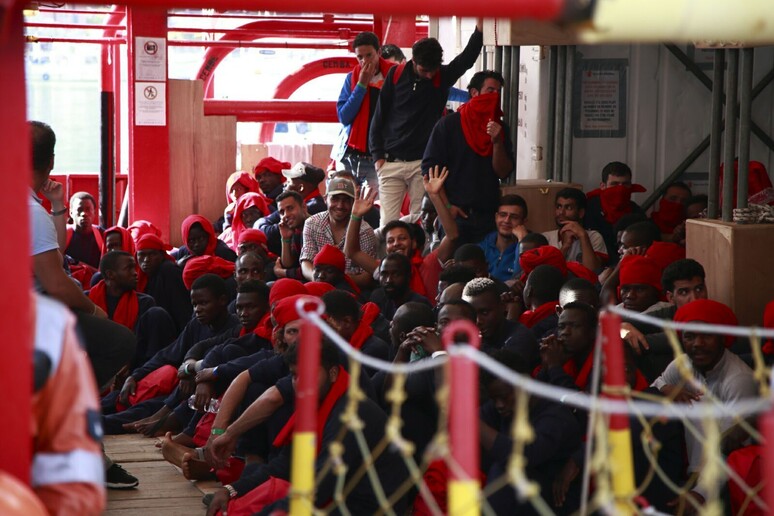The European Commission and EU
border agency Frontex at the weekend approved a code of conduct
drafted by Italy for ships run by non-governmental organisations
rescuing migrants in the central Mediterranean off Libya.
The code is intended to help stem a ceaseless tide of
arrivals that has strained Italian reception capacity to the
limit.
The code of conduct sets 11 rules.
These include a ban on phoning "to facilitate the departure
of boats carrying migrants", the obligation to allow police
aboard and a requirement to have a technical certification to
carry out rescues.
Those who refuse to sign the code may not get authorisation
to access Italian ports.
The first rule is the "absolute prohibition" for humanitarian
ships to enter Libyan waters, which can only be reached "if
there is a clear danger for human life at sea".
The NGOs are then asked not to make phone calls or send
luminous signals to facilitate the departure and the embarkation
of boats carrying migrants, with "the obvious intention of not
facilitating contacts with traffickers".
Among the other obligations is that of not transporting
migrants on other ships, be they Italian or belonging to
international organisations, except in an emergency situation.
And after rescues the NGO ships "will have to complete the
operation by taking the migrants to a safe port".
They are further asked not to hinder search and rescue (SAR)
operations by the Libyan Coast Guard, to make known the funding
sources for their rescue activities, and to notify their
flag-flying country's maritime coordination centre of the
intervention, "so that this State is informed on the ship's
activities and can assume responsibility also for the purposes
of maritime safety".
Italy's partners provisionally agreed to the code as part of
efforts to share the burden of the central Mediterranean migrant
emergency.
ALL RIGHTS RESERVED © Copyright ANSA











